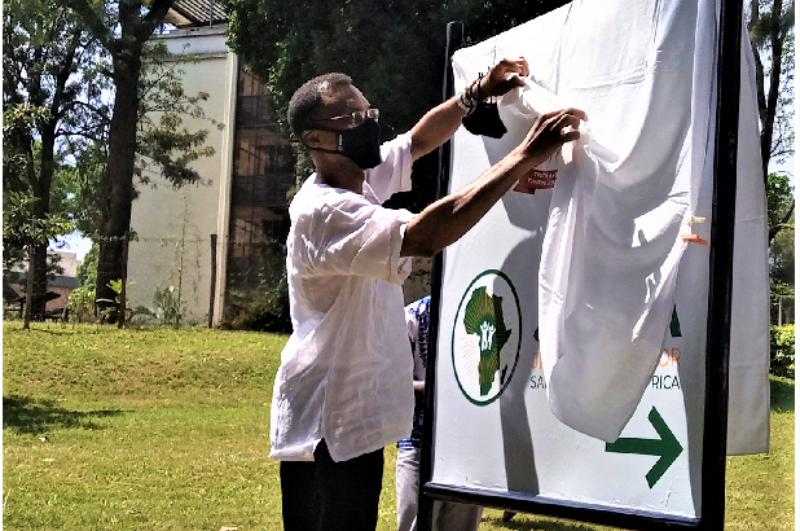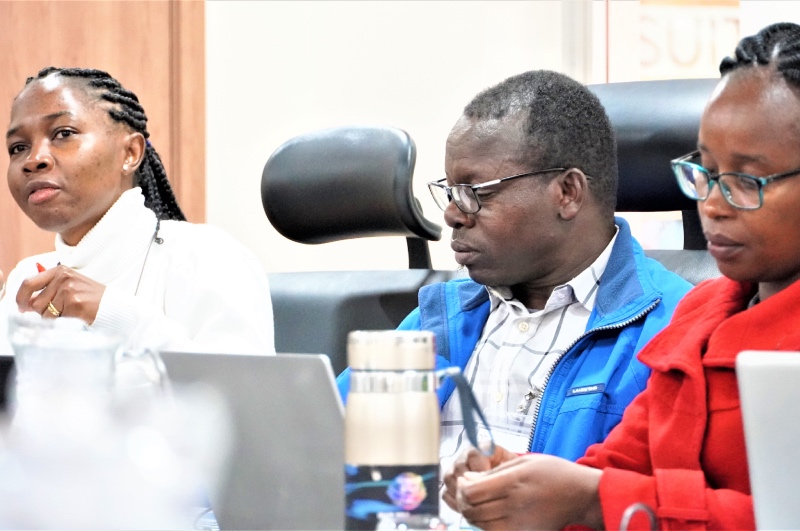

The Catholic Diocese of Nakuru hosted a week-long Safeguarding Training from 14th to 19th July 2025, bringing together 16 dedicated participants, including priests, religious, members of the diocesan secretariat, and other pastoral agents.
The training, facilitated by the Jesuit Centre for Safeguarding in Africa under the Hekima University College in Nairobi, Kenya, aimed to promote a culture of safety, responsibility, and accountability in the Church’s ministry.
Fr. Binamungu Mukasa, SJ, the Socius and Safeguarding Coordinator for the Jesuit Eastern Africa Province (AOR) set the tone for the week with his opening remarks, stressing the urgency and importance of fostering a Church environment where every person, especially children and vulnerable adults, feels safe and protected.
One of the highlights of the first day was the thought-provoking presentation by Fr. John the Baptist Zamcho-Anyeh, SJ, the Socius of JCAM, titled "Clothed in Care." Drawing from African proverbs and the symbolic meaning of clothing in various traditions, he emphasized the role of clergy and religious in modeling care and promoting wellness in the Church. The proverbs became a thematic reference point throughout the week’s sessions, especially as the participants tackled the intersection of culture and safeguarding.
Under the theme "Culture and Safeguarding," the participants explored how cultural norms can both support and hinder safeguarding efforts. Open dialogue emerged around gender disparities, harmful traditional practices, and the respectful navigation of entrenched beliefs. A key objective was aligning cultural understanding with universal safeguarding principles to ensure a Church that truly protects all its members.
Day three brought focus to legal frameworks, both civil and ecclesiastical, relevant to safeguarding. Participants engaged with statutes, policies, and best practices designed to shield minors and vulnerable adults. A significant moment in the week was the personal visit and address by His Lordship, Rt. Rev. Cleophas Oseso Tuka, Bishop of Nakuru. He thanked Hekima University College and the JCSA for spearheading the initiative, urging participants to take the lessons seriously and to cascade the knowledge to parish communities. He also called for the swift finalization of the diocesan safeguarding policy.
Sr. Catherine Nzwili from Makueni, Kenya, led a comprehensive session on Canon Law, focusing on the Church’s internal response to abuse. Highlighting the revisions in Book VI of the Code of Canon Law (2021), she clarified the duty to report abuse, the increasing role of laypeople in canonical processes, and the importance of clear codes of conduct. She reiterated the Church’s unwavering stance on zero tolerance, echoing the directives of Pope Francis and his predecessors.
Further sessions delved into understanding trauma and preventive strategies. A presentation on Adverse Childhood Experiences (ACEs) by Nicholas provided insight into how early trauma impacts development and heightens vulnerability in adulthood. In the afternoon, Lucy facilitated an in-depth session on policy formulation, during which participants reviewed the diocesan safeguarding policy, identified existing gaps, and proposed realistic enhancements.
The training concluded with a Training of Trainers (ToT) session. Each participant delivered a brief presentation on a safeguarding topic, followed by peer feedback. Teams also collaborated on action plans tailored to key diocesan sectors, including parish ministry, education, health, and diocesan administration.
JCSA will continue to support the Diocese of Nakuru in the implementation phase, offering technical support, follow-up, and further capacity-building as needed.
This training marked a significant step toward creating a safer, more compassionate, and accountable Church in the Diocese of Nakuru. The collaborative efforts of clergy, religious, and lay pastoral agents reflect a unified commitment to safeguarding the dignity and well-being of all.
Related Articles






Select Payment Method
Pay by bank transfer
If you wish to make a donation by direct bank transfer please contact Fr Paul Hamill SJ treasurer@jesuits.africa. Fr Paul will get in touch with you about the best method of transfer for you and share account details with you. Donations can be one-off gifts or of any frequency; for example, you might wish to become a regular monthly donor of small amounts; that sort of reliable income can allow for very welcome forward planning in the development of the Society’s works in Africa and Madagascar.
Often it is easier to send a donation to an office within your own country and Fr Paul can advise on how that might be done. In some countries this kind of giving can also be recognised for tax relief and the necessary receipts will be issued.



